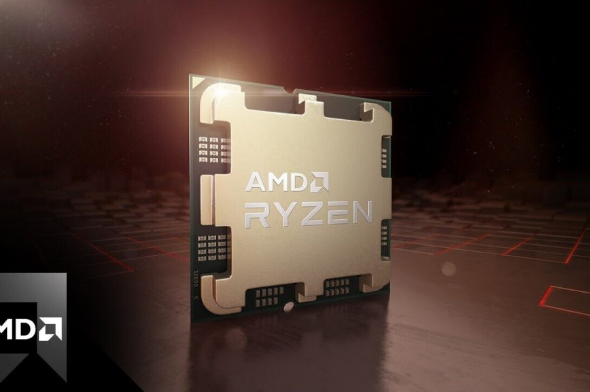Connection to DriversCloud Create a DriversCloud.com account Reset your DriversCloud.com password Account migration
Promising Zen 5 architecture: a small revolution at AMD?
It's still just rumors, but the first echoes of Zen 5 processor performance are impressive.
The Zen microarchitecture launched on March 2, 2017 will have enabled AMD to regain its colors after several years of Intel's overwhelming dominance in the CPU world. The resulting Ryzen processors have managed to carve out a place in the sun and convince many users of their efficiency. After the Zen microarchitecture, we were logically treated to Zen 2, Zen 3 and Zen 4 on September 27, 2022. Each time, the gains have been astounding, and while Intel seems to be struggling to really push up the IPC (instructions per cycle) index, AMD is having a field day. Logically, more than 18 months after the release of Zen 4, we should soon be discovering the replacement microarchitecture.
AMD has been quick to announce, on several occasions already, that Zen 5 is " well on track " and that its release should take place before the end of the year via two new generations of processors, the Granite Ridge on the one hand and the Strix Point on the other. We don't yet have exact details of the specifications of these two processor ranges, but Strix Point - mentioned a little more precisely - should innovate on many points: in addition to Zen 5 for the CPU part, we'll have to count on RDNA 3+ architectures for the GPU part (graphics processor) and XDNA 2 for the NPU part (neural processor).
For the moment, however, we're talking about the CPU and Zen 5 cores. On several occasions, AMD has stated that Zen 5 would drastically increase the number of instructions per cycle compared to Zen 4, and the first performance feedback seems to prove them right. These are still just rumors, but relayed by Kepler_L2 - a well-known informant - and the VideoCardz site, the rumors seem solid. They refer to SPEC single-core performance. In other words, we're talking about the performance of a single Zen 5 core compared with a single Zen 4 core... and there's no question about it: we're talking about a 40% increase in performance. An appreciable gain, given that Ryzen processors are renowned for their excellent parallelism (multi-core performance).
Of course, as rumors go, it's best to keep a certain distance and not get too excited. What's more, Kepler_L2 doesn't go into detail, saying for example whether we're talking about " on average 40% higher " or " up to 40% higher " performance. The difference would obviously be significant. Nonetheless, this first snippet of information is tantalizing. We can't wait to find out more!






